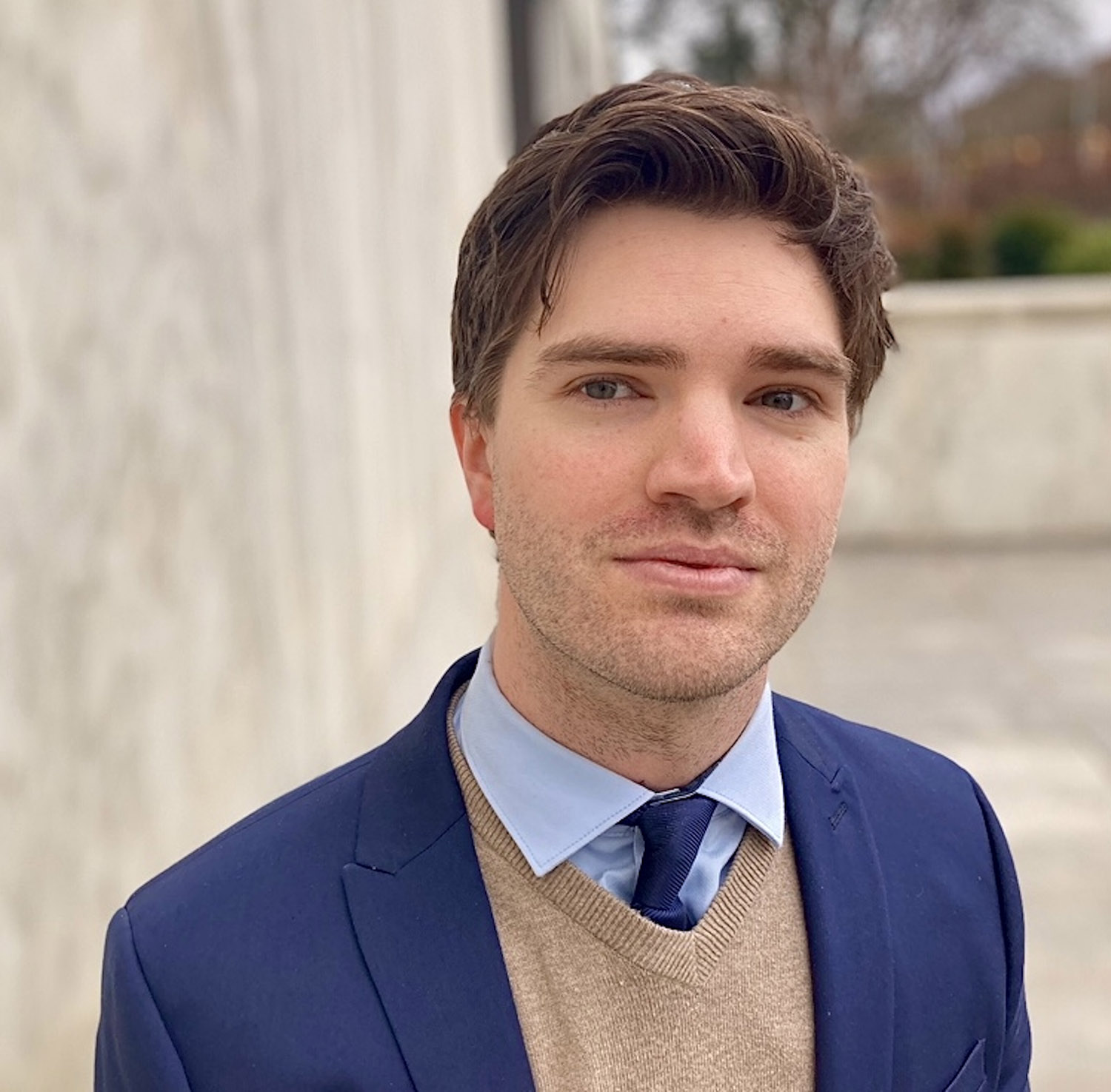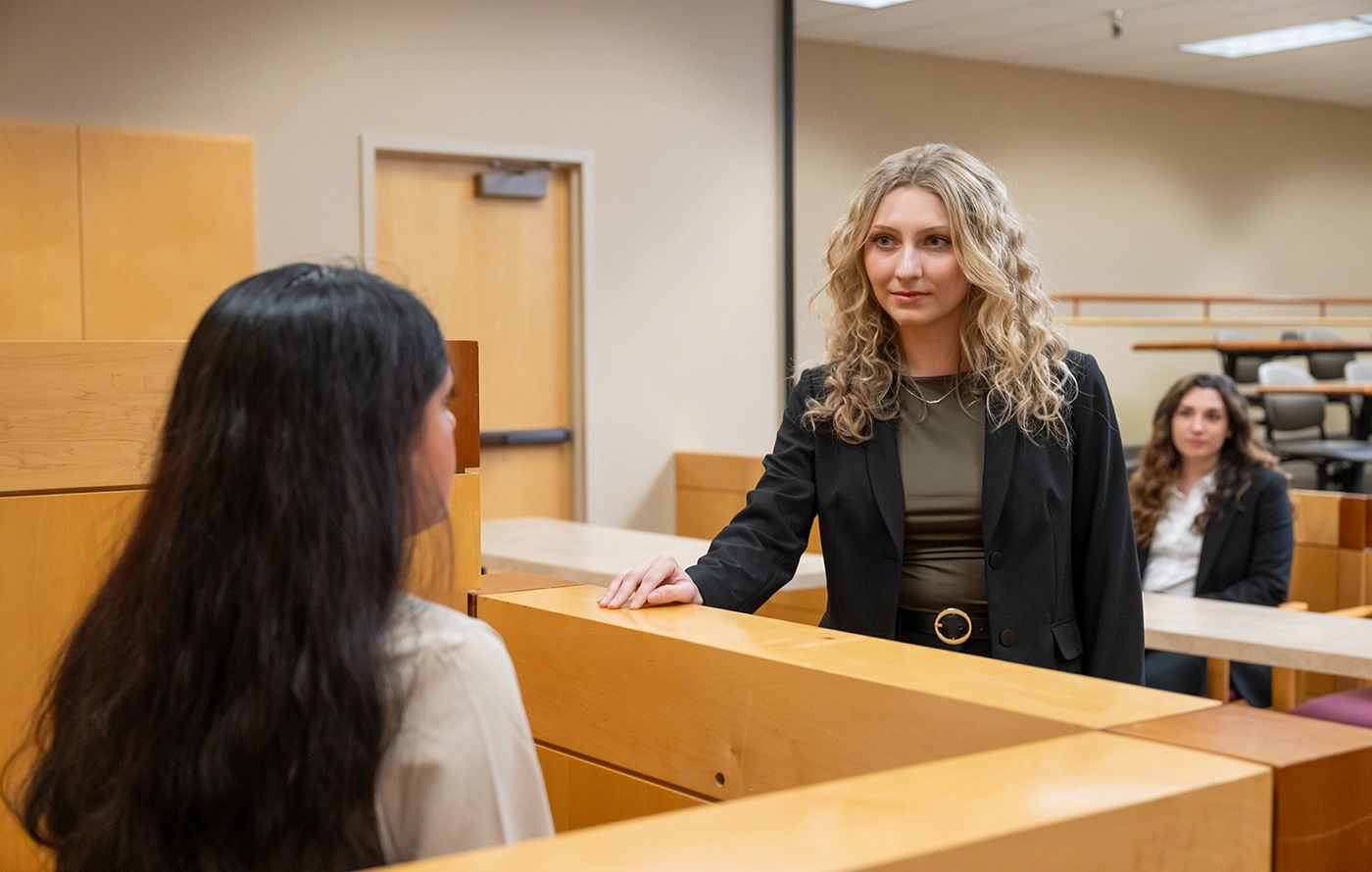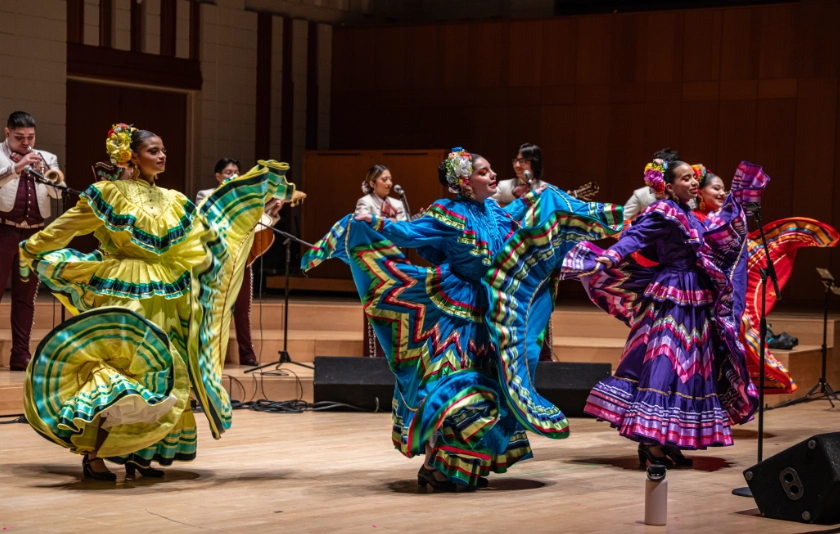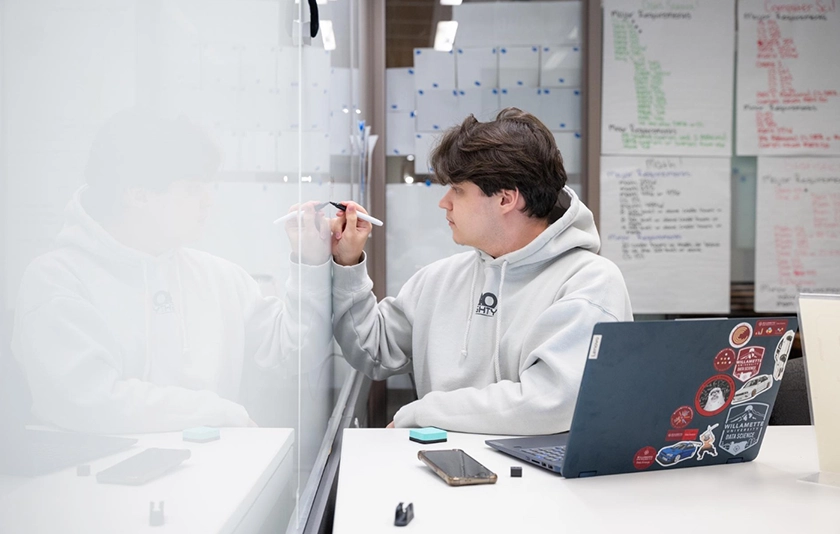Oregon faces a significant shortage of public defenders and a backlog of cases where people who cannot afford legal counsel have no one available to defend them. Willamette University’s School of Law is helping to address the shortage by training the next generation of criminal defense attorneys and giving students the opportunity to serve real clients through its Criminal Defense Clinic.
For students like Ryan Coons JD’26, Willamette’s clinic is an opportunity to move beyond coursework and step into the courtroom — a place where Coons hopes to spend much of his future career. Coons came to law school with the intention of pursuing criminal defense, and when the Criminal Defense Clinic launched in the fall of 2024 he was quick to enroll.
The opportunity to argue in court presented itself early when Coons successfully argued a motion to dismiss in the Marion County Circuit Court, securing a significant victory that exemplifies the clinic’s hands-on approach to legal education.
 Coons was assigned a misdemeanor case, the most common type of case that lacks representation in Oregon. From the outset, he took a client-centered approach, a foundational principle of the clinic. He spent time reviewing the discovery material and meeting with the client to hear about their story — ensuring that the legal strategy matches the client’s goals.
Coons was assigned a misdemeanor case, the most common type of case that lacks representation in Oregon. From the outset, he took a client-centered approach, a foundational principle of the clinic. He spent time reviewing the discovery material and meeting with the client to hear about their story — ensuring that the legal strategy matches the client’s goals.
With this in mind, Coons formulated a plan for the case to seek a civil compromise, where the defendant would reach an agreement with the alleged victim leading to the dismissal of criminal charges.
“In most cases in Oregon, the State does not object to a civil compromise,” says Kurt Wohlers, Willamette Law professor and clinic director, “But in Ryan’s case, the State did object so it sent us back to the drawing board to figure out how to create an argument that the case fit the existing statute and the civil compromise resulted in a just outcome for both parties.” In court, Coons argued against a seasoned attorney from the District Attorney’s Office.
As the first student to appear in court for a contested hearing in the Criminal Defense Clinic, Coons was thrilled to be able to gain more experience. He says “I went into the clinic hoping to spend more time in the courtroom in order to get comfortable and confident. There are parts about appearing in court that are hard to learn strictly in a classroom setting.” Coons sees real benefits from going through the courtroom process and learning everything from which side of the courtroom to stand on, or even how to answer questions from the judge that you weren’t expecting.
“Oral advocacy is tricky, it requires practice and that is easiest to do when you have an experienced professor helping to guide you through the process,” Coons shares.
Wohlers also helps by supporting the students with researching cases and walking through arguments before appearing in court. For Coons, arguing in court was a hectic dynamic experience, but he felt more confident having the base of knowledge that the clinic provided.
Coons successfully won his argument in court, marking a victory for him and his client, as well as the clinic as a whole. It was a particularly meaningful moment for Coons, not just because of the win, but because it reinforced why he came to law school in the first place.
“It felt good to have a positive outcome for the case and to know that I served my client to the best of my abilities,” he says. “But at the same time, I know that in criminal defense, you can put forward the strongest possible argument and still lose. That’s why I try to focus on doing the best I can for my client, regardless of the outcome.”
Making a dent in Oregon’s public defender shortage
Willamette’s Criminal Defense Clinic aims to take on a total of 80-100 cases by the end of this academic year, allowing students to apply their legal education in a hands-on setting while making a tangible impact.
Wohlers sees the clinic’s work aligning well with the larger need in Oregon’s legal landscape. The Oregon Public Defense Commission has set a goal to double the number of public defenders in the state, addressing a shortage that has left many defendants without legal representation. “We can’t just pull public defenders out of thin air,” Wohlers explains. “We need to start encouraging law students to pursue criminal defense, and clinics like this are one way to do that.”
For Coons, the experience has reaffirmed his commitment to criminal defense and his belief in the values of the justice system and individual rights. He encourages all law students, no matter their career plans, to consider the clinic. “Even if you aren’t interested in criminal defense, give it a chance,” he says. “It might make a believer out of you, and it will also provide you with valuable skills and experience that you can apply to any area of the law.”
Even in its early stages, the clinic already exemplifies Willamette Law’s expertise in educating practice-ready lawyers. The law school continues to be at the forefront of preparing future attorneys to tackle Oregon’s most urgent needs.




